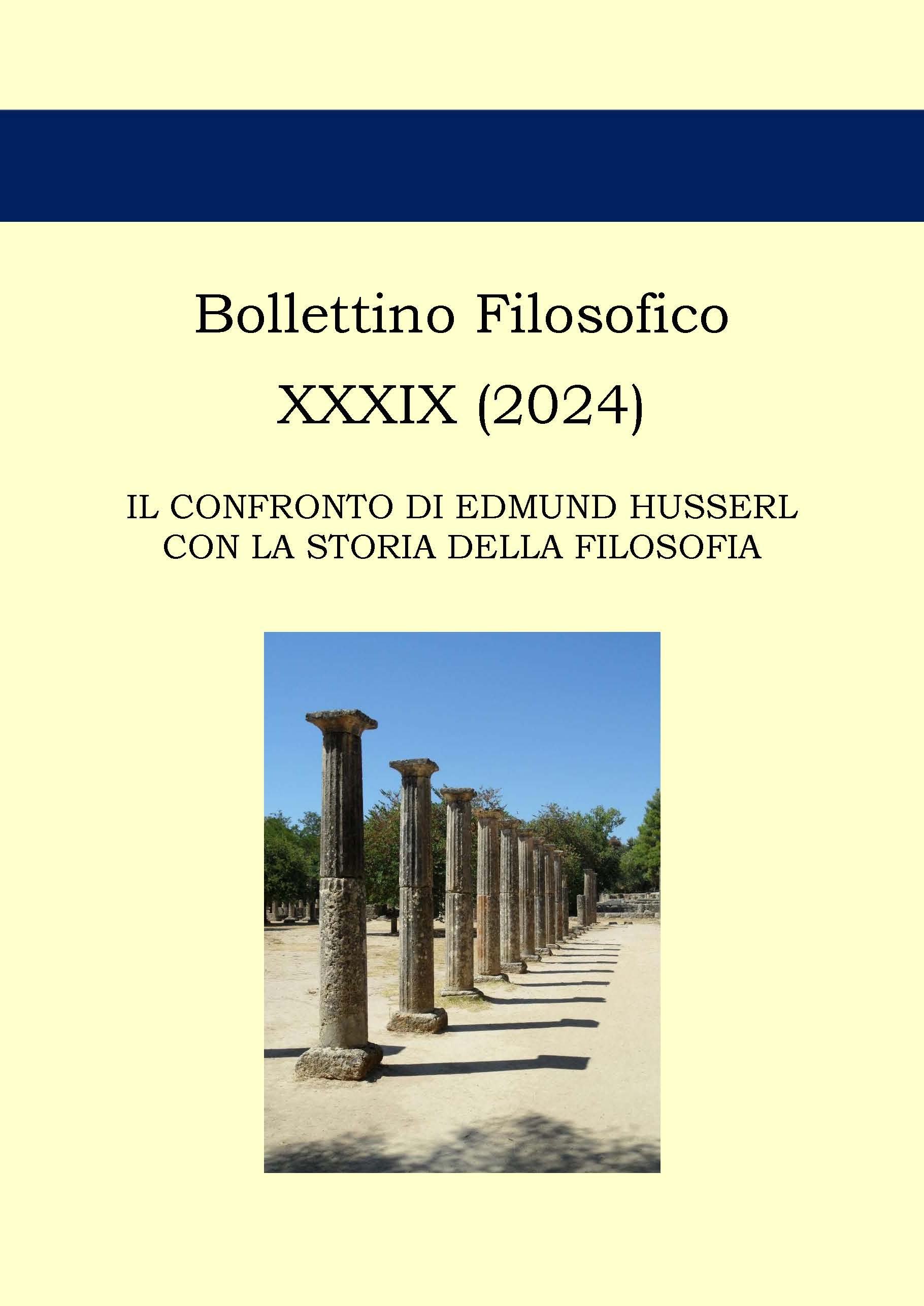Husserl as Historic of Ideas, between Forests and Regional Ontologies
DOI:
https://doi.org/10.6093/1593-7178/11438Abstract
Critical History of Ideas is the title Husserl gave to a series of lectures in 1932, focusing on the history of the relationship between truth and perception and to phenomenological reduction. These lectures form the first part of a course dedicated to Erste Philosophie (First Philosophy: Critical History of Ideas and Theory of the Phenomenological Reduction). Their purpose is to reconstruct the genesis of the structural problems of phenomenology through historical perspective. Plato, Descartes, Locke, Hume, and Berkeley are interpreted as opportunities to focus on the fundamental themes of phenomenology. In this sui generis history of ideas, the most substantial section is devoted to the reconstruction of empiricism and its skeptical outcome. This highlights a form of elective affinity between the empiricist world and the phenomenological field, engaging Husserl in remarkable discussions that go far beyond mere historical reconstruction of the genesis of ideas. The underlying intuition of these lectures is that the history of philosophy can be seen as a precursor to philosophical themes, and that there is a common ground of truth between traditions, which must be tested in a typically Platonic dialogic form.
Keywords: Acknowledgment, Empiricism, Identity, Immanence, Phenomenological Reduction, Skepticism, Synthesis of Aspects
Downloads
Downloads
Published
How to Cite
Issue
Section
License
The author retains the copyright of his work whilst granting anyone the possibility “to reproduce, distribute, publicly communicate, publicly exhibit, display, perform and recite the work”, provided that the author and the title of the journal are cited correctly. When submitting the text for publication the author is furthermore required to declare that the contents and the structure of the work are original and that it does not by any means compromise the rights of third parties nor the obligations connected to the safeguard of the moral and economic rights of other authors or other right holders, both for texts, images, photographs, tables, as well as for other parts which compose the contribution. The author furthermore declares that he/she is conscious of the sanctions prescribed by the penal code and by the Italian Criminal and Special Laws for false documents and the use false documents, and that therefore Bollettino Filosofico is not liable to responsibilities of any nature, civil, administrative or penal, and that the author agrees to indemnify and hold Bollettino Filosofico harmless from all requests and claims by third parties.

